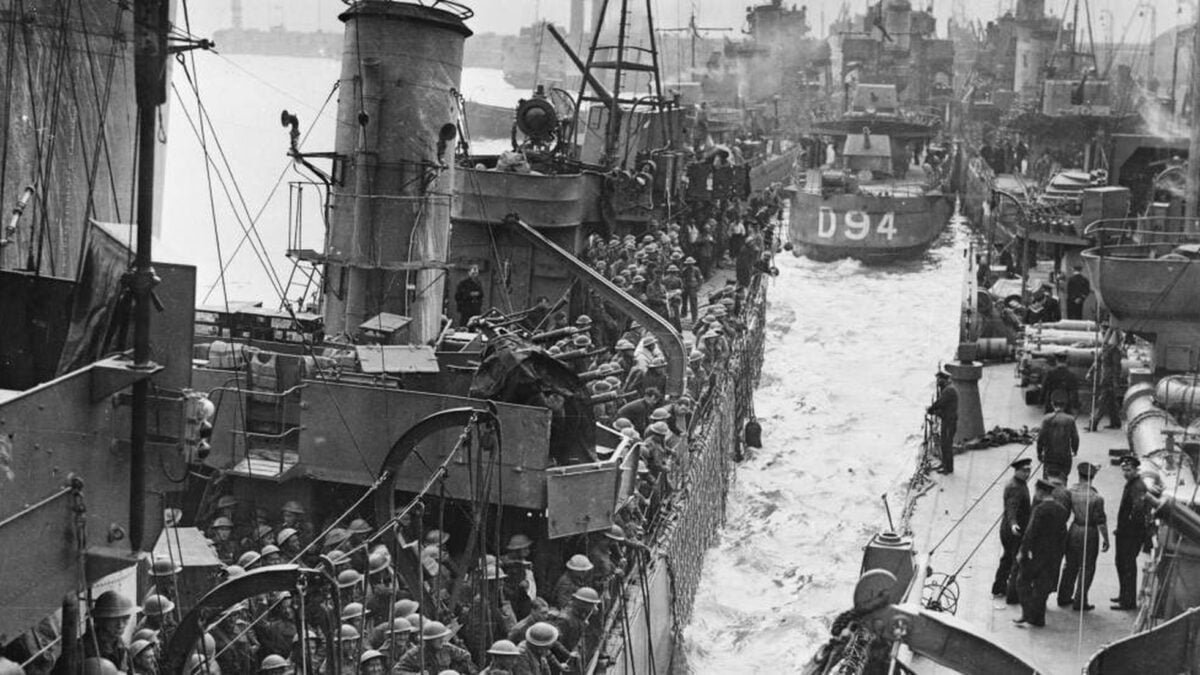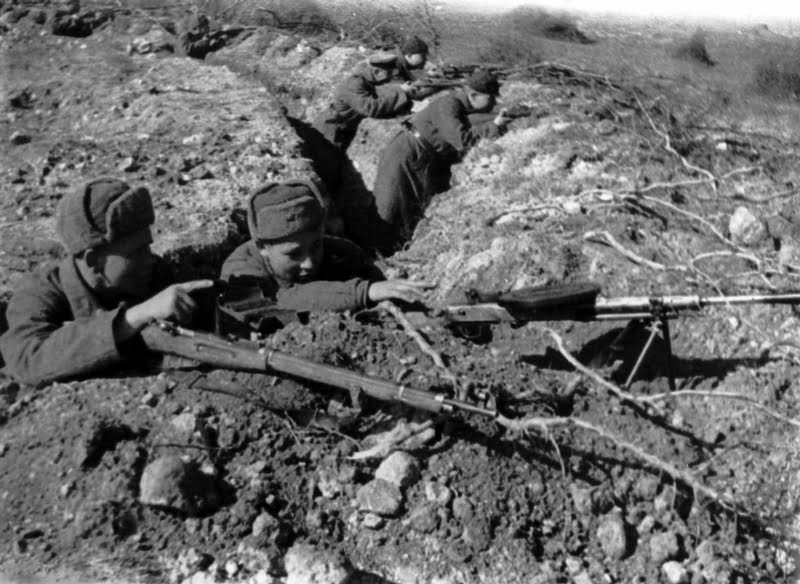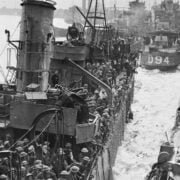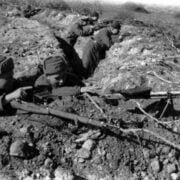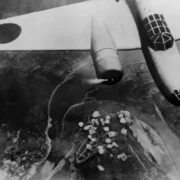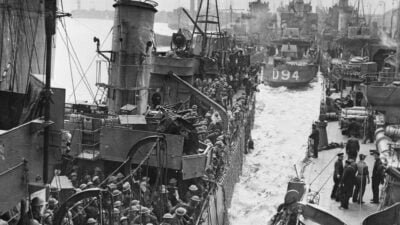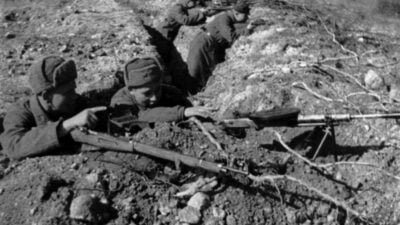During World War II, the Afrika Korps and its commander, General Erwin Rommel, became synonymous with the campaign in North Africa. The rise of this German expeditionary force and Rommel’s command were pivotal to the conflict’s history in the region. Let’s delve more deeply into how this renowned elite corps emerged and Rommel’s role in its leadership.
Also check out: A Heroic Resistance of Belgium in World War I
Origins of the Afrika Korps
The unit was officially established in February 1941 when Rommel was sent to Libya to support the struggling Italian forces in the North African campaign. The name “Afrika Korps” was a casual designation that stuck, but its official name was the “Deutsches Afrikakorps.” The corps was originally made up of a small German force and was intended to give a boost to the stalled Italian campaign.


Rommel: The “Desert Fox”
Erwin Rommel, nicknamed the “Desert Fox” for his bold tactics and leadership skills, was the charismatic commander leading the Afrika Korps. Rommel was one of the most respected military leaders of Nazi Germany, known for his ability to inspire his troops and his offensive stance.
He was a fervent follower of blitzkrieg principles, a form of fast-moving warfare that became his signature. He emphasized the importance of mobility, surprise, and tactical flexibility in his operations in the North African desert.
Initial Success of the Afrika Korps
Under Rommel’s command, the unit achieved initial success in the early phases of the campaign. His audacity and tactical skills allowed him to gain ground against the British forces, which were initially unprepared to handle the swift and mobile style of warfare.
Rommel became a legendary figure not only among his own troops but also among the Allies. His name was respected and feared on the battlefield, making him one of the most recognizable personalities of the war.
The Legend Develops
Rommel’s initial success and leadership became legendary and exerted a lasting influence on the World War II in the Pacific Theater. These elements marked the beginning of the North African campaign but also signaled a period of intense conflicts and years-long attrition.
Strategies and Tactics of the Afrika Korps
The North African campaign during World War II was characterized by a series of unique strategies and tactics adopted by the Afrika Korps under General Erwin Rommel’s command. This campaign was a remarkable demonstration of desert warfare, involving strategies adapted to the geographical conditions and the needs of the Afrika Korps.


Desert Warfare
One of the distinctive strategies used in North Africa was desert warfare. Rommel believed in maintaining the initiative, and his tactics reflected this philosophy. The Afrika Korps forces were highly mobile, using tanks and transport vehicles for rapid attacks and surprise maneuvers. This agile approach caught opponents off guard, allowing them to swiftly gain ground.
Rommel also employed ambush tactics, hiding his forces in rugged terrain and launching surprise attacks against the Allies. This combination of rapid maneuvers and surprise assaults made them a formidable force in the desert.
Logistics in the Desert
Logistics played a critical role in the North African campaign, considering the vastness of the desert and the constant need for water, fuel, and supplies. The unit heavily relied on supply convoys to sustain their operations. Capturing strategic ports like Tobruk played a significant role in securing supplies.
The scarcity of supplies was a constant concern for both sides, but the ability to maintain a continuous flow of support contributed to their capacity to sustain prolonged campaigns.
Combat Tactics
Aside from maneuver warfare and tactical movements, the Afrika Korps was renowned for their creative and effective use of tanks. Rommel emphasized the use of medium and light tanks, such as the Panzer II and Panzer III, which were more agile and suited for the desert terrain. He also encouraged ambush tactics and force concentrations to gain tactical advantage.
The combination of artillery, air support, and infantry alongside tank forces made them a highly versatile force. Rommel believed in maintaining constant pressure on the enemy and exploiting any emerging advantage.
Their unique and adaptable tactics in North Africa challenged Allied forces and allowed them to maintain the initiative in various battles. Rommel became a master of desert warfare, and his strategies and tactics contributed to their lasting fame as a formidable force.
Allied Pressure and the Defeat of the Afrika Korps
Despite their innovative tactics, the growing military and logistical might of the Allies, along with logistical challenges faced by the unit, eventually began to press on Rommel’s forces. This constant pressure led to the final defeat in the North African campaign.
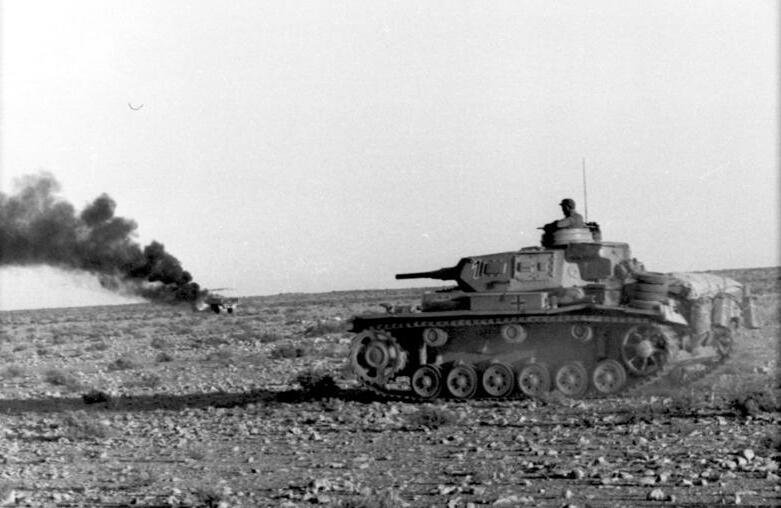

Supplies and Logistics
Logistics in the North African desert was a critical factor. As the Allies strengthened their logistical capabilities, the Afrika Korps became increasingly burdened. Rommel faced issues with fuel, ammunition, and other essential supplies. The distance between supply lines and the frontline was a constant concern.
Allied Offensive
As the Allies bolstered their forces and improved their logistical capability, they launched a series of offensives that put the Afrika Korps on the defensive. The Battle of El Alamein, in particular, was a turning point. Weakened by shortages, Rommel faced a much better-equipped and larger enemy.
Continual attrition in battles and loss of territory forced Rommel into retreat. His style of maneuver warfare and tactical movements became less effective when forces were in retreat.
The Tunisian Campaign
After the defeat at El Alamein, the unit withdrew to Tunisia, where they continued to fight against the Allied forces. However, they faced a more powerful and well-supplied enemy, including American and British forces. The campaign in Tunisia resulted in successive defeats for the Germans.
Diminished Forces and Surrender of the Afrika Korps
As defeats accumulated and Allied pressure continued, the forces were diminished and weakened. The final surrender occurred in May 1943, marking the end of the North African campaign. Axis forces were captured in large numbers, and control of North Africa shifted to the Allies.
The defeat in North Africa marked a turning point in World War II and contributed to the weakening of the Axis in the North African theater. The lessons learned by the Allied forces in fighting the Afrika Korps also had a lasting impact on future campaigns in Europe and the Pacific.
Impact of the North African Campaign
The North African campaign and Rommel’s defeat had a lasting impact on World War II and military history in general. The legacy of this campaign can be observed in several areas:
Redefined Theater of Operations
The defeat marked a significant turnaround in the Mediterranean Theater of Operations and the European Theater of Operations. Allied victories in North Africa provided a solid foundation for future campaigns in Europe and southern Europe, including the invasion of Sicily and subsequent mainland European invasions.
Fighting Rommel’s forces in the North African desert provided valuable desert warfare experience for the Allied forces. Additionally, Rommel’s innovative tactics and strategies, such as maneuver warfare, were studied and incorporated into Allied military doctrines.
Logistics and Supply
The campaign highlighted the importance of logistics and effective troop supply in military operations. The distance between supply lines and the frontline, as well as supply shortages, were significant challenges faced by both sides. These lessons had a lasting impact on future campaigns and military strategies.
The North African campaign reinforced the importance of cooperation among the Allied nations. Forces from different countries, such as the United States, the United Kingdom, Australia, and Free France, joined forces to defeat the common enemy. This strategic cooperation was crucial in subsequent campaigns in Europe and the Pacific.
Legacy of Rommel and the Afrika Korps
The commander of the Afrika Korps, Erwin Rommel, left an indelible mark on military history. His tactical skill and innovations in maneuver warfare continue to be studied and admired. Although defeated in North Africa, Rommel remains an iconic figure in military history.

